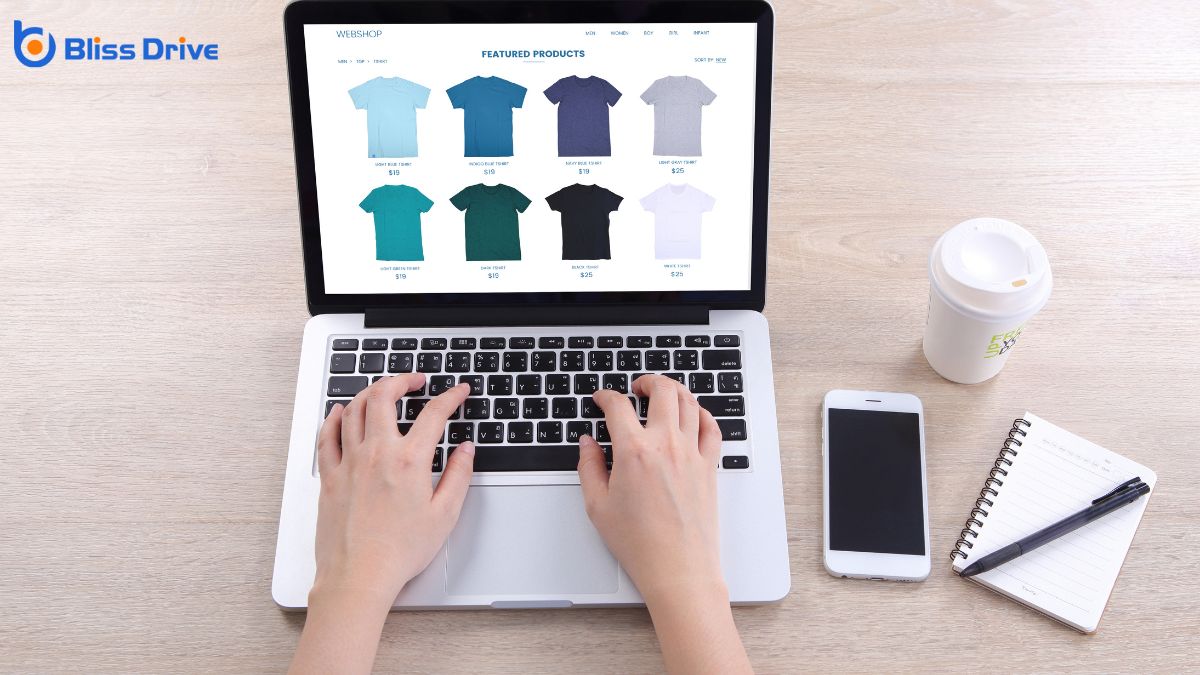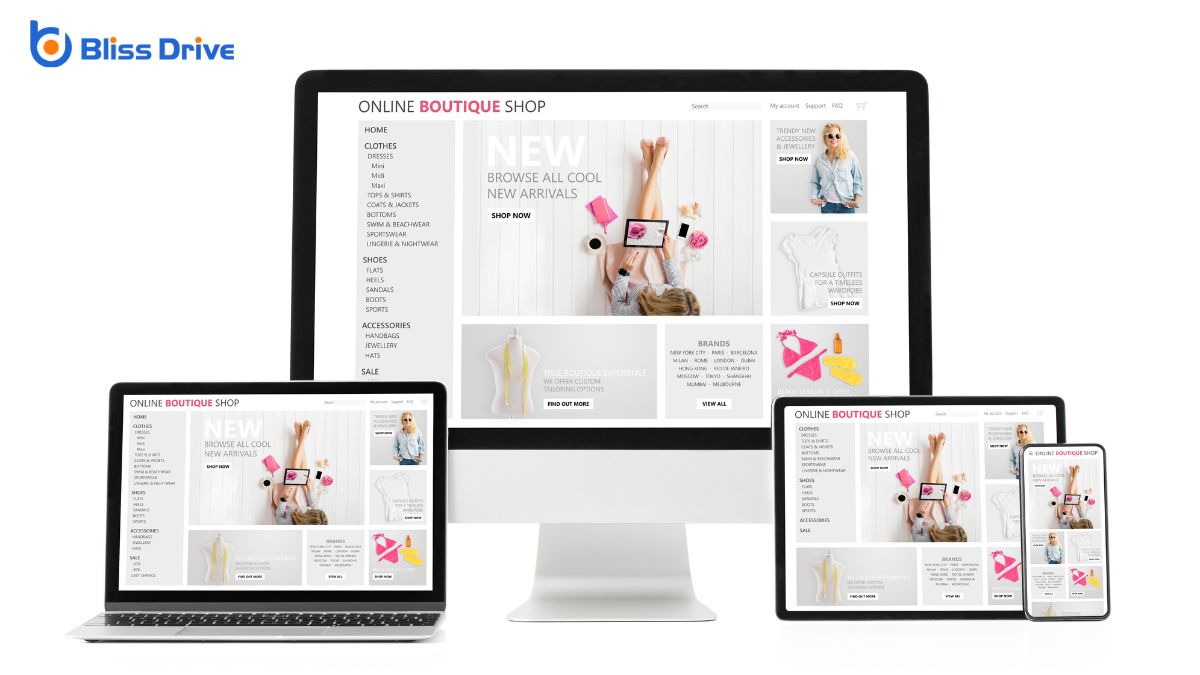Learn More About Us

As we explore the question of which ecommerce platform is best for beginners, we must consider ease of use, support, and features that help new entrepreneurs succeed. Each platform offers its own unique advantages, yet some stand out for their simplicity and extensive tools. We'll guide you through the top contenders, highlighting what makes them ideal for those just starting on their ecommerce journey. Let's uncover which platform might be your best starting point.

When choosing an ecommerce platform, where do we start?
First, let’s consider our budget. We need a platform that aligns with our financial plan while offering the features we require.
Next, we should assess ease of use. A user-friendly interface can save us time and reduce frustration.
Let’s also think about scalability. As our business grows, we need a platform that can expand with us without requiring a complete overhaul.
Another key factor is integration capabilities. We want a platform that seamlessly connects with tools we already use, like payment gateways and inventory systems.
Finally, reliable customer supportServices provided to assist customers before, during, and after a purchase to ensure a positive expe... is essential. When issues arise, we’ll need quick, effective assistance to keep our business running smoothly.
Let's weigh these factors carefully.
Let's take a closer look at Shopify's key features, which make setting up an online store straightforward for beginners.
We'll also explore the various pricing plans it offers to fit different business needs and budgets.
While exploring the world of ecommerce, it’s vital to understand the key features that make Shopify a standout platform for beginners.
We believe Shopify excels in offering user-friendly tools and functionalities that make setting up an online store straightforward.
Here's a quick overview:
Exploring Shopify’s pricing and plans is essential for understanding how to budget effectively for your ecommerce venture.
Let's break it down. Shopify offers several tiers to accommodate different needs. The Basic plan, at $39 per month, gives us essential features to get started. For more advanced capabilities, the Shopify plan at $105 per month is ideal for growing businesses. The Advanced plan, at $399 monthly, caters to larger operations requiring more detailed analytics and lower transaction fees.
Each plan includes a set of core features, but as we move up, additional functionalities like professional reports and third-party shipping rates become available.
Shopify also provides a 14-day free trial, allowing us to explore the platform before committing financially. Understanding these options empowers us to make informed decisions.
For those venturing into the world of ecommerce, Wix offers an intuitive solution that makes building an online store straightforward.
As beginners, we often seek platforms that simplify the process without compromising on quality. Wix stands out by offering a user-friendly experience with its drag-and-drop editor, allowing us to customize our store with ease.
Here's why Wix is an excellent choice for newcomers:
When we explore Squarespace, we're greeted with a user-friendly design interface that makes building our online store a breeze.
Its integrated ecommerce tools provide everything we need to manage products, payments, and customer interactions efficiently.
This combination of design and functionality guarantees that even beginners can create professional-looking online shops without feeling overwhelmed.
Although many platforms endeavor to offerThe specific product or service being promoted by affiliates. an intuitive design experience, Squarespace truly excels at balancing design and functionality for both beginners and seasoned users.
Its user-friendly interface simplifies the process of creating a visually appealing website without overwhelming us with complexity.
Here’s why Squarespace stands out in this aspect:
While many platforms offer ecommerce capabilities, Squarespace integrates these tools seamlessly, enhancing our ability to manage and grow an online store. It strikes a balance between design and functionality, offering us a suite of tools that don’t require a steep learning curve.
With integrated inventory managementThe process of ordering, storing, and using a company's inventory, including raw materials, componen..., secure payment options, and customizable email campaigns, we can handle our business needs efficiently.
Squarespace also provides powerful analytics to track sales and customer behavior, allowing us to make informed decisions. Their templates aren't only visually appealing but also responsive, ensuring a smooth shopping experience across devices.
As beginners, we appreciate the straightforward setup and the ability to scale our store as we grow. With Squarespace, we don’t have to sacrifice aesthetics for functionality.
For those of us looking to immerse ourselves in the world of ecommerce, WooCommerce offers a seamless way to transform a WordPress site into a fully functional online store.
We appreciate its flexibility and ease of use, especially if we're already familiar with WordPress. Here’s why WooCommerce stands out:
BigCommerce empowers us to elevate our ecommerce journey beyond the basics, offering more than just a run-of-the-mill online store setup.
It provides robust features like customizable templates, advanced SEO toolsSoftware and online tools used for various aspects of SEO, such as keyword research and link buildin..., and seamless integration with multiple sales channels. These tools help us manage and grow our business efficiently, making it ideal for those ready to expand beyond beginner levels.
We appreciate its user-friendly interface, which simplifies complex tasks like inventory management and product listing.
Additionally, BigCommerce supports a wide range of payment gateways and shipping options, ensuring a smooth experience for our customers.
With its scalable solutions, we can confidently handle increased traffic as our business grows.
For those seeking a platform that supports expansion, BigCommerce offers the necessary tools and flexibility.
Etsy stands out as the ideal platform for those of us with a passion for handmade and vintage goods, offering a unique space to showcase our creativity and craftsmanship. Its user-friendly interface makes it easy for beginners to get started.
Here’s why Etsy is perfect for us:
Although diving into the world of ecommerce can seem intimidating, Weebly offers a straightforward and accessible platform for small businesses looking to establish an online presence.
Weebly's user-friendly interface allows us to create a website without any coding knowledge. The drag-and-drop feature simplifies the design process, making it easy to customize our site to reflect our brand identityThe visible elements of a brand, such as color, design, and logo, that identify and distinguish the .... Weebly also provides essential ecommerce tools, like inventory management and secure payment options, giving us the confidence to manage our store efficiently.
Moreover, Weebly's integration with various apps enables us to expand our store's functionality as our business grows.
Whether we're just starting out or looking to enhance our digital footprint, Weebly equips us with the necessary tools to succeed in the competitive online marketplace.

When choosing an ecommerce platform, it's essential that we compare both costs and features to find the right fit for our business needs.
Let's take a closer look at some popular options:
In our journey exploring the best ecommerce platforms for beginners, we've highlighted several options, each with unique strengths. Shopify stands out with its user-friendly interface and robust support. Wix and Squarespace offer ease of use and design flexibility, while WooCommerce taps into WordPress's power. BigCommerce goes beyond basics, Etsy caters to creatives, and Weebly offers simplicity for small businesses. Ultimately, the best choice depends on your specific needs and the features that matter most to you.
